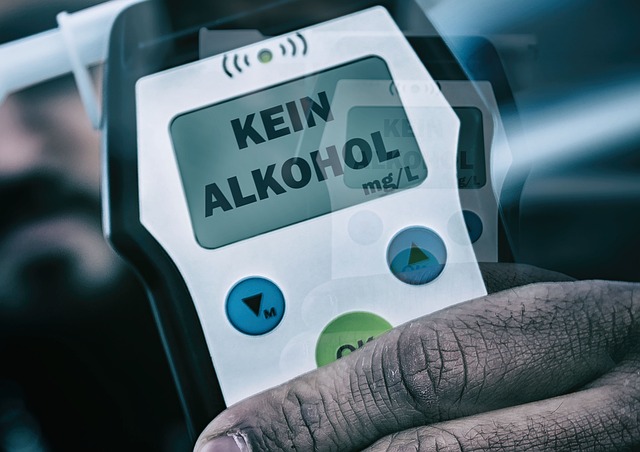Drug-impaired driving is a growing global concern, prompting countries to adopt zero-tolerance policies with stringent penalties. Advanced tech solutions like rapid drug tests, smart transportation systems, and real-time vehicle monitoring aim to detect impaired drivers and identify high-risk areas for targeted interventions. While these innovations offer enhanced safety, they also raise privacy issues and require robust data security measures. Balancing safety, privacy, and enforcement, these tech solutions, including AI and machine learning, strengthen the fight against drug-impaired driving, aiming to reduce and ultimately eradicate this critical public health issue on a global scale.
Drug-Impaired Driving (DID) poses a significant global challenge, with zero-tolerance policies in place to combat it. This article delves into the current scenario of DID, exploring challenges in enforcing strict laws and highlighting the role of technology in detection. We discuss innovative tech solutions aimed at prevention and deterrence, from advanced impairment testing to data analytics. Additionally, we examine future implications and global perspectives on achieving drug-free driving, emphasizing the potential of technological advancements in mitigating this critical issue.
- Understanding Drug-Impaired Driving: The Current Scenario
- Challenges in Enforcing Zero Tolerance Policies
- Role of Technology in Detecting Impairment
- Innovative Tech Solutions for Prevention and Deterrence
- Future Implications and Global Perspectives on Drug-Free Driving
Understanding Drug-Impaired Driving: The Current Scenario

Drug-impaired driving is a growing concern in today’s society, with significant implications for road safety. The current scenario reveals a pressing need for stricter measures due to the increasing number of accidents and fatalities caused by individuals operating vehicles under the influence of drugs. This issue has prompted many countries to adopt a zero-tolerance policy, focusing on severe penalties and increased enforcement to deter potential offenders.
Tech solutions play a pivotal role in combating this problem. Advanced drug testing technologies, such as rapid, on-site tests, can quickly detect substance use, providing law enforcement with valuable tools for roadside screenings. Furthermore, the development of smart transportation systems equipped with sensors and data analytics enables authorities to identify patterns and high-risk areas, allowing for more targeted interventions. These technological advancements offer promising avenues to prevent drug-impaired driving and ensure safer roads.
Challenges in Enforcing Zero Tolerance Policies

Enforcing zero-tolerance policies for drug-impaired driving presents several unique challenges. One significant hurdle is the subjective nature of identifying impairment, which traditionally relies on officer observation and breathalyzer tests. This can lead to false positives or negatives, affecting the accuracy and fairness of enforcement. Additionally, the dynamic nature of transportation networks means that law enforcement must constantly adapt to new vehicle technologies and driving behaviors facilitated by advancements in automotive tech solutions for impaired driving. While these technologies, such as advanced driver-assistance systems (ADAS), offer potential for improved safety, they also introduce complexities into existing enforcement strategies.
Integrating cutting-edge tech solutions for impaired driving requires a delicate balance. While innovations like real-time vehicle monitoring and smart road infrastructure can aid in early detection of drug-impaired drivers, these technologies raise privacy concerns and necessitate robust data security measures. Furthermore, the continuous evolution of automotive technology demands ongoing training and updates for law enforcement officers to ensure they remain equipped to interpret and utilize new tools effectively in their efforts to maintain zero-tolerance policies.
Role of Technology in Detecting Impairment

In the ongoing battle against drug-impaired driving, technology plays a pivotal role in detecting and preventing such dangerous behavior. Advanced tech solutions for impaired driving employ a range of innovative tools to ensure road safety. One prominent method is the use of breathalyzer devices that accurately measure blood alcohol content (BAC), helping law enforcement officers identify drivers under the influence. Additionally, sophisticated drug-testing kits capable of detecting various substances in saliva or urine samples are becoming more common, providing a comprehensive approach to impairment assessment.
Moreover, emerging tech solutions include the integration of artificial intelligence (AI) and machine learning algorithms that analyze driver behavior patterns. These systems can detect subtle signs of impairment through steering deviations, lane drift, and response times, offering a proactive approach to road safety. With continuous technological advancements, the fight against drug-impaired driving gains new momentum, aiming to eradicate this significant public health concern.
Innovative Tech Solutions for Prevention and Deterrence

The fight against drug-impaired driving has seen a surge in innovative tech solutions aimed at prevention and deterrence. Advanced driver monitoring systems, for instance, utilize sophisticated sensors and cameras to detect signs of impairment, alerting authorities before any potential harm occurs. These technologies not only enhance road safety but also serve as powerful deterrent factors, knowing that every drive is potentially under watchful eye.
Furthermore, artificial intelligence (AI) and machine learning algorithms are being leveraged to analyze vast datasets related to impaired driving incidents, identifying patterns and hotspots. This intel allows for more targeted enforcement efforts and the implementation of proactive measures, such as increased patrols in high-risk areas during peak times. By combining these tech solutions with stringent zero-tolerance policies, societies can create a safer, more responsible driving environment.
Future Implications and Global Perspectives on Drug-Free Driving

As global awareness around drug-impaired driving continues to grow, future implications are set to shape a zero-tolerance approach worldwide. Advancements in tech solutions for impaired driving will play a pivotal role in enforcement and prevention. Innovative technologies such as advanced breathalyzers, biometric sensors, and vehicle-integrated monitoring systems promise to enhance accuracy and deter potential offenders. Additionally, data analytics can identify patterns and hotspots, enabling targeted campaigns and efficient resource allocation.
On a global perspective, harmonizing laws and sharing best practices among nations will be essential. Many countries are already adopting international standards, but further collaboration could lead to more robust drug-free driving initiatives. This includes standardized testing protocols, stricter penalties, and public education campaigns that transcend borders, fostering a culture of responsible driving and community safety worldwide.
The global shift towards implementing zero-tolerance policies for drug-impaired driving is a significant step in ensuring road safety. While challenges exist, particularly in enforcement and legal frameworks, technological advancements offer promising solutions. Integrating innovative tech, such as advanced field sobriety tests and accurate blood testing devices, can enhance impairment detection and deter potential offenders. As we look towards the future, global collaborations and knowledge-sharing will be crucial to refining strategies and fostering a culture of drug-free driving, ultimately reducing road accidents and saving lives. Tech solutions for impaired driving play a pivotal role in this ongoing effort.






